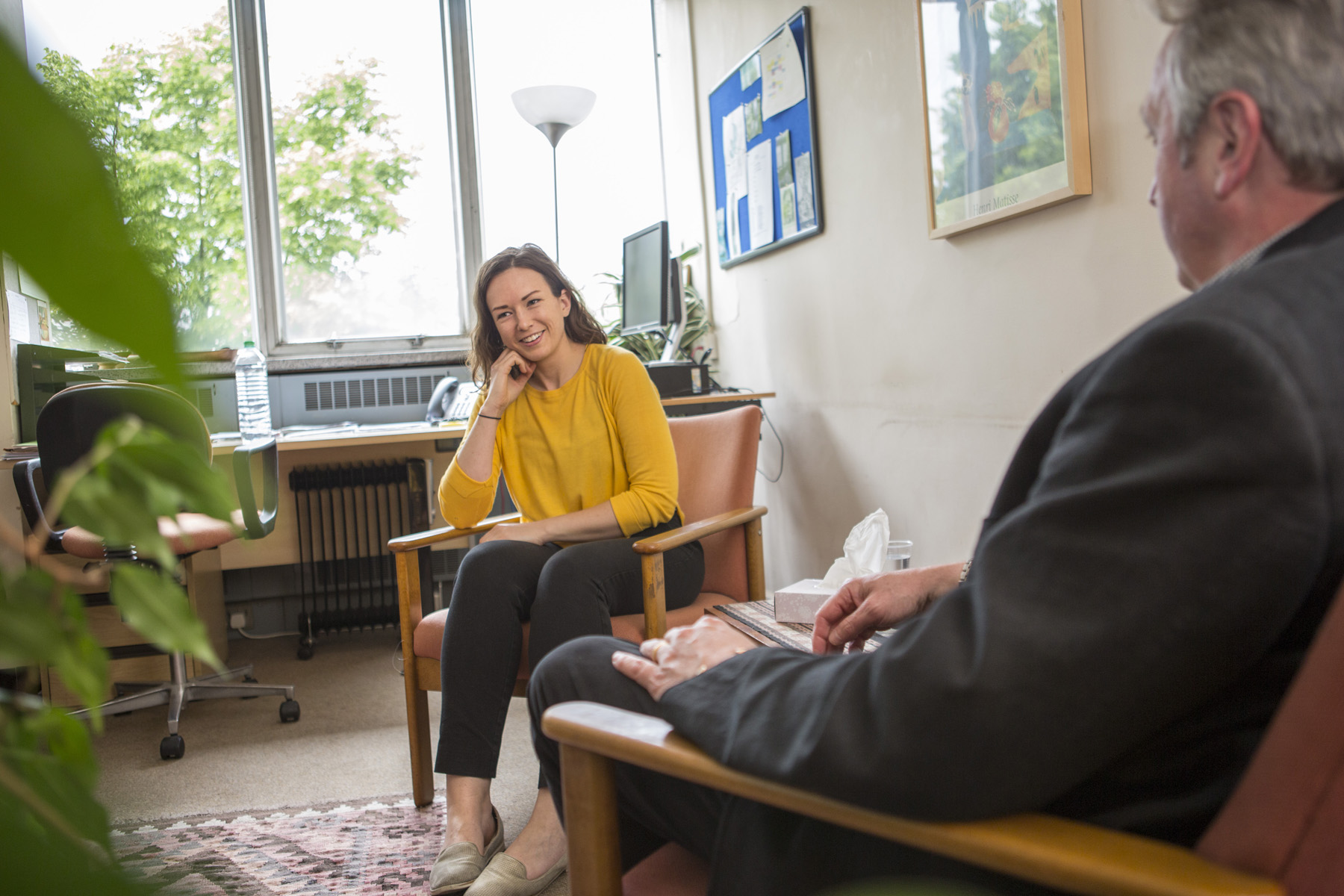
Treatments
We believe in working together to find the right individual or family treatment. We don’t believe in a ‘one size fits all’ approach to treatment, so we offer a range of treatment types.
Child psychotherapy
Child psychotherapy helps children and young people to make sense of sad, angry, painful or confusing feelings and thoughts. It usually has a beneficial effect on relationships at home and on behaviour, as children become less preoccupied or better able to concentrate. Most children can then make better use of opportunities at school. Child psychotherapists…
Cognitive behavioural therapy
Cognitive behavioural therapy (CBT) is a talking therapy that looks at the way our thoughts and feelings affect the way we behave. CBT is based on the idea that your thoughts, feelings, physical sensations and actions are interconnected, and that negative thoughts and feelings can trap you in a vicious cycle. It aims to help…
Couples therapy
Couples therapy, also called relationship counselling, can help when a relationship is in crisis (after an affair, for example). Both partners talk in confidence to a therapist to explore what has gone wrong in the relationship and how to change things for the better. It can help couples learn more about each other’s needs and…
Dynamic interpersonal therapy
Dynamic interpersonal therapy (DIT) can help people with emotional and relationship problems. When a person can deal with relationship problems more effectively, their psychological symptoms often improve. DIT is a time-limited psychodynamic therapy. Time-limited therapy happens over a fixed number of sessions. One of the main ideas in psychodynamic therapy is that when something is…
Eye movement desensitisation and reprocessing
Eye movement desensitisation and reprocessing (EMDR) is a type of therapy used to treat the symptoms of trauma. When we experience traumatic events the thoughts, feelings and memories we have about those events can get stuck. It can be hard to move on from them. The aim of EMDR is to help the brain to…
Family therapy
The aim of family therapy is to find ways for family members to help each other. In family therapy, a therapist works with families and those in close relationships who experience problems. The therapist explores their views and relationships to understand the problems they are having. It helps family members communicate better with each other.…
Group therapy
Group therapy is a useful way for people who share a common problem to get support and advice from each other. In group therapy up to eight people meet together with a therapist. Group therapy uses psychoanalytic psychotherapy. This type of therapy is concerned with how things are here and now. The group looks at…
Mentalisation-based therapy
Mentalisation-based therapy (MBT) is a type of long-term psychotherapy. Mentalisation is the ability to think about thinking. It helps to make sense of our thoughts, beliefs, wishes and feelings and to link these to our actions and behaviours. Mentalisation is a normal capacity that we all use in everyday life. It underpins all human relationships.…
Physical health
We are committed to providing a holistic and integrated NHS service to benefit the overall health and wellbeing of our patients and carers. Did you know that people with mental health problems are on average, predicted to live 10-25 years less than the general population. This is because; Most of the issues mentioned above are…
Psychoanalytic psychotherapy
Psychoanalytic psychotherapy is a talking therapy based on saying whatever is going through your mind. This helps you become aware of hidden meanings or patterns in what you do or say that may contribute to your problems. Many people come to us because they feel they are trapped by their past and want to talk…
Talking therapies
Research shows that talking therapies are the best way of treating most emotional problems. This is what we specialise in.
Working with parents
We work with parents who have a concern about their child and want to better understand what their child’s difficulties are about. Parents can feel ‘stuck’ when they want to help their child but don’t know how to, or feel that whatever they try doesn’t help or even makes things worse. We also offer support…
